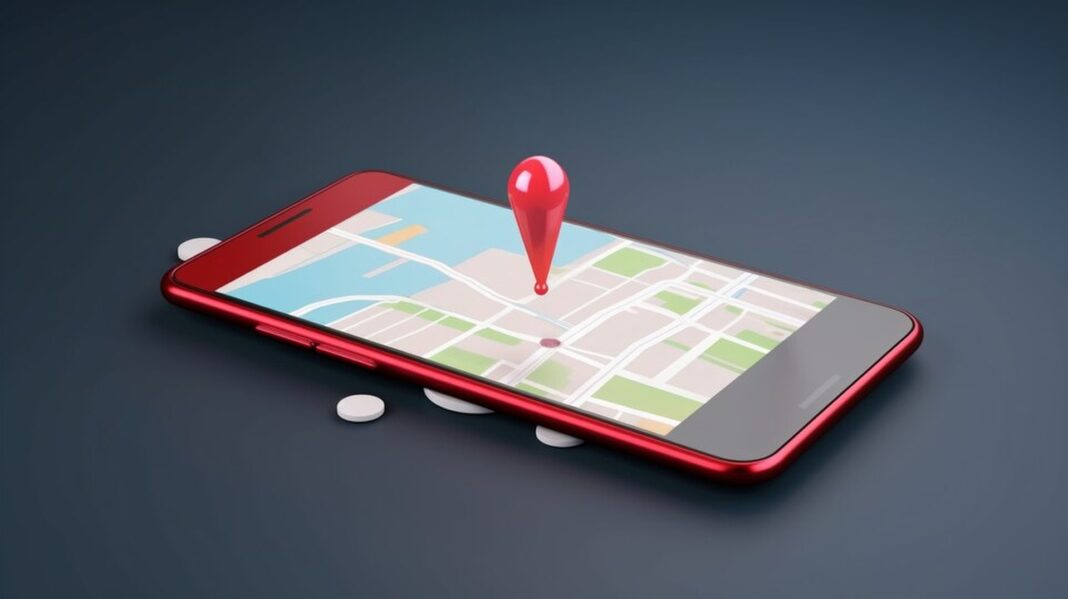Location services are essential to everyday life. They improve efficiency and convenience in several fields. However these technologies‘ environmental impact is often overlooked. GPS technology essential to location services helps solve environmental issues. GPS affects our environment in many ways including carbon footprints, fuel efficiency, urban planning, wildlife protection, disaster response and energy use.
The Carbon Footprint Of Location Services
Useful location services have a hidden carbon cost. GPS data centers need plenty of electricity. They consume fossil fuels emitting greenhouse gasses. GPS gadgets also need power. These influence operating efficiency and environmental impact. Energy usage rises as more people utilize location services. Increased carbon emissions worsen climate change.
There is a bright side. Some location based solutions surprisingly boost efficiency. Logistics truck routes may be optimized. These tools reduce travel distances and times, lowering fuel consumption and emissions.
The negative effects of location services‘ carbon footprint should not be the only consideration. Emphasizing renewable energy and data center efficiency is a solution. Green technology should be promoted. Innovative technologies like edge computing. These advances can reduce central data center load.
Sustainable tech practices can balance the industry. Promoting energy efficient device manufacturing can help. Consumers can reduce their carbon footprint as they become more aware. While location services have consequences they also offer opportunities for improvement.
How GPS Enhances Fuel Efficiency
GPS is crucial to fuel efficiency. Transportation emits lots of carbon. Logistics today relies on route optimization. By incorporating GPS organizations may simplify their operations. This efficiency leads to lower fuel usage.
GPS permits real time tracking of cars. This capacity helps enterprises to escape traffic congestion or road closures. Adjusting routes after analyzing circumstances leads to smoother travel. Such advancements generally lead to savings both in time and gasoline expenses. When fewer gallons of fuel are consumed fewer emissions escape into the environment.
Companies are increasingly using fleet management technologies driven by GPS. These programs evaluate driving characteristics. Data from these instruments informs drivers about acceleration tendencies, idle periods and braking practices. By supporting eco-friendly driving behaviors organizations may further cut their emissions.
The ripple benefits of greater fuel economy extend beyond individual enterprises. Reduced gasoline use may lead to a more stable market for fuel which benefits consumers. A societal trend towards adopting GPS for these objectives might severely harm our ecosystem. It promotes larger sustainability aims.
Thus GPS is a climate change ally as well as a navigation aid. Technology’s ability to improve fuel economy shows its importance in sustainability.
GPS And Urban Planning A Sustainable Future
Sustainability is difficult in urban development. However GPS aids this effort. Cities are filling up globally. Managing urban expansion requires efficient land usage. GPS helps chart traffic and demographic trends. This knowledge influences planning choices.
GPS data helps urban planners improve public transit routes. This boosts service and reduces automobile use. Improved public transportation reduces city congestion. Fewer automobiles on the road reduce emissions and air pollution.
Additionally GPS technology aids smart city development. Integrating urban systems improves resource management. For instance real time data may guide rubbish pickup. This efficiency reduces transportation and fuel use making cities greener.
GPS tracks urban growth increasing transparency. Citizens may participate more in planning. This collaboration links growth with sustainability. Participation boosts community confidence in ideas.
Urban planning requires forethought to ensure sustainability. GPS improves the environment for future generations. Its data collection and analysis capabilities help planners innovate. Thus GPS in urban planning promotes sustainability.
Tracking Wildlife The Conservation Benefits Of GPS
Wildlife tracking is essential to modern conservation. GPS has transformed animal behavior and habitat research. It tracks wildlife movements precisely. Understanding migration and habitat use requires this data. Knowing where animals go helps conservationists protect ecosystems.
Animal GPS collars provide valuable insights. These devices provide real time animal location and activity data. Effective conservation strategies require understanding these patterns. That knowledge can help create protected areas.
Additionally GPS tracking helps identify human wildlife conflict. Many species are threatened by urbanization. Researchers can reduce these conflicts by tracking animal movements. Building safe corridors through human dominated landscapes is one example.
Over time GPS data can help conservationists assess population health. They may notice behavioral or range changes that indicate declining health. This proactive strategy may lead to prompt interventions.
Ultimately GPS technology not only deepens scientific knowledge but also aids conservation efforts. Tracking animals helps conserve biodiversity. In an age when ecosystems are more endangered, utilizing GPS gives promise. This technology proved vital for building sustainable conservation projects that benefit species and ecosystems alike.
Mitigating Actions GPS In Disaster Response
Disaster response is crucial for maintaining community safety and resilience. GPS technology plays a significant role in reducing the repercussions of such disasters. It gives precise location information vital for emergency services. In the aftermath of natural catastrophes rapid access to impacted communities is vital. GPS facilitates effective route planning assuring prompt replies.
First responders depend on GPS to traverse tough terrains. Be it floods, earthquakes or wildfires, having pinpoint precision makes a big difference. Technologies combined with GPS can evaluate the most damaged places. This data may prioritize response efforts effectively allocating resources where they are most needed.
GPS also informs residents during evacuations. Communication is crucial during calamities. GPS enabled gadgets allow authorities to update safe routes and shelters in real time. A smooth information flow may save lives and decrease turmoil.
GPS is also useful after a tragedy. It aids recovery. Accurate mapping aids in damage assessments. This data improves rebuilding financing and resource allocation.
GPS technology is proactive in disaster response. Long term recovery planning and urgent rescue attempts improve. Disaster management frameworks using GPS help communities prepare for future issues.
Reducing Energy Consumption With GPS
Energy consumption is a significant climate change and sustainability issue. GPS technology can help solve this problem. Its real time data improves energy efficiency across industries. GPS integration improves transportation utility management and household energy consumption.
Route optimization cuts fuel use in transportation. Vehicles spend less energy on shorter, more efficient routes. Drivers and public transportation systems follow this rule. City energy costs may be reduced via operational efficiency.
Utility firms are using GPS to distribute electricity better. Companies may enhance grid performance by precisely mapping service zones. Real time data provides rapid outage reactions minimizing energy waste.
Residential smart home systems employ GPS. These technologies efficiently track energy utilization. They adapt settings to users‘ routines. A GPS enabled thermostat can learn when occupants are home or away improving heating and cooling.
Using GPS technology gives a diverse approach to energy consumption. Municipalities, businesses and people benefit. Harnessing such technologies is crucial as the globe becomes more environmentally conscious. GPS helps reduce energy use and promote sustainability.
How Does GPS Help In Reducing Emissions?
GPS helps reduce emissions particularly in transportation. Route optimization is a major advantage. Real time GPS data helps freight trucks and public vehicles avoid gridlock. Route efficiency reduces travel time and fuel consumption.
Fleet management systems also use GPS. These technologies track vehicle performance and driving. Companies may teach drivers eco friendly driving and braking by evaluating this data. Such adjustments may drastically reduce fuel use and pollutants.
For emissions reduction urban planning uses GPS. GPS data helps city planners enhance public transportation and land use reducing car usage. GPS analytics helps plan building design and green areas creating more sustainable cities. Thus GPS is a key instrument for emissions reduction as well as navigation.
Can GPS Contribute To Sustainable Urban Development?
The use of GPS in urban planning has several environmental advantages. Accurate location data aids in wiser planning. City planners can better assess traffic population and land use. Sustainable development strategies that increase resource efficiency need such knowledge.
GPS provides real time tracking for public transit. Information about transit timetables helps passengers avoid delays and choose public transportation over driving. Reducing automobile traffic lowers carbon footprints.



